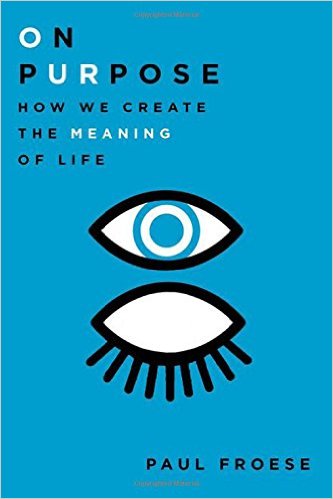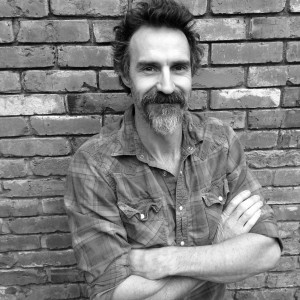
 Religion Watch recently interviewed ISR fellow and Baylor University sociologist Paul Froese about his new book, On Purpose: How We Create the Meaning of Life (Oxford University Press, $27.95).
Religion Watch recently interviewed ISR fellow and Baylor University sociologist Paul Froese about his new book, On Purpose: How We Create the Meaning of Life (Oxford University Press, $27.95).
RW: You have previously studied and written about religious repression in Russia and people’s images of God. Was it a challenge to write on such a vast subject as life’s meaning and purpose, especially for a sociologist?
Froese: Writing a book on purpose was the hardest thing I have ever done because the breadth of the topic is infinite. That said, approaching the topic as a sociologist provided ballast. While in the weeds of endless philosophical complexity, I was always led back to the foundation of community and social context in determining each individual’s system of values and meaning.
Each chapter delves into a different layer of meaning and begins with a question for the reader—it is intended to set the stage for the discussion that follows. They are 1) our shared assumptions about purpose, 2) the possibility of meaninglessness, 3) the ways in which people discover themselves, 4) the moral certitude some people feel, 5) the effects of social time, and 6) the limits of power in deciding our purposes.
RW: Early on in the book, you discuss findings showing that secular countries have a lower rate of people claiming that life is meaningful but that such a deficit is distributed more toward the deprived in these societies. Can you explain that?
Froese: Although religion is undeniably the source of meaning and purpose for most people in the world, it is not secularism per se which robs people of a sense of purpose. Rather it is the fact that modernity produced a plurality of existential choices, one of which is the possibility that everything is meaningless. This possibility looms most precariously for those who live in isolation within wealthier countries, which tend to be more secular.
People in poverty within less modernized countries may live lives of untold desperation, but they are more likely to persist within a larger religious culture imbued with meaning. They may not be happy, but they feel purposeful. In contrast, the disadvantaged within wealthy countries suffer from not only relative deprivation but also existential deprivation. They persist within cultures that provide little meaning to those who are not successful; they feel left behind and useless within societies which derive their meaning from economic success and technological progress.
RW: Yet in a secular country such as the Netherlands, you find that there is both a low rate of meaning and purpose but also that the Dutch are the least bored people in the world. On the other hand, people in the ex-communist region of the Caucasus, such as Georgia, are the most bored. So is it the case that well-off secular people have high levels of meaning?
Froese: Well-off people, whether they are religious or secular, tend to express a clear purpose in life. This is because well-off people tend to live in communities that re-affirm their self-worth and significance to a larger purpose. Believers and non-believers alike seek to make sense of existence, particularly their own. Both tend to position the self in reference to something bigger than the self. The difference is that religious believers understand the self in relation to a decidedly supernatural realm. Secular individuals also envision transcendent concepts, like goodness and justice, but with no supernatural source. Still, both provide a sense of meaning.
A much deeper difference than our standard religious-secular differences is the extent to which people live within supportive communities. Religions tend to provide such communities, but secular cultures have them too. It is individuals who live within non-supportive communities who are most likely to suffer from existential despair. While conceptually distinct, boredom, depression, and despair are all influenced by one’s connection to community. In certain regions of the world, a positive connection to community is simply harder to foster. The results are higher levels of boredom, depression, and despair.
RW: How do Americans rate on these measures? And what relation does it have to the moderately high levels of U.S. religiosity?
Froese: Religiosity is always related to higher levels of purpose for two reasons. First, religions tend to provide community; this is the most basic need in developing a satisfying purpose of life. Only with community can someone feel significant. Second, religions provide very specific and detailed systems of moral meaning. The fact that the United States is more religious than many other post-industrial countries explains why Americans are more likely to say they know their life purpose.
RW: You don’t seem to see the world becoming more disenchanted or secular as much as that people are becoming “self-enchanted.” Can you explain that?
Froese: Modernity certainly undermines a lot of the magical and religious beliefs of the past. Modern educated people tend not to be fearful of a demon-haunted world; we also are less bewitched  by the same forms of mysticism that enchanted our ancestors. That said, enchantment lives on but in new forms. In the book, I discuss the emergence of the language of psychology that now pervades both secular and religious worldviews. Within this perspective, the self is rendered mysterious in the same ways that the material world had previously inspired mysticism. We now search for demons and revelations within self-discovery.
by the same forms of mysticism that enchanted our ancestors. That said, enchantment lives on but in new forms. In the book, I discuss the emergence of the language of psychology that now pervades both secular and religious worldviews. Within this perspective, the self is rendered mysterious in the same ways that the material world had previously inspired mysticism. We now search for demons and revelations within self-discovery.
Religionists discover God within the self. Secularists discover their True nature within the self. My term “self-enchantment” refers to the feeling that one can understand the self and that the self is ultimately good and therapeutic. It is the way that the modern individuals re-enchant the world, by finding a connection to eternal goodness within.
RW: You place a good deal of emphasis on organized religion providing meaning for people through group loyalty and emotions. With the growing numbers of non-affiliated or “nones” in the U.S., do you just see self-enchantment becoming more prevalent?
Froese: Self-enchantment has both religious and secular forms. It is the feeling of personal moral goodness and can be fostered by both religious and secular communities. I think the growth of the “nones” reflects the fact that non-affiliation is more socially and morally acceptable in the United States. It does not predict the demise of religious group activity but indicates the desire for some Americans to explore their spirituality outside of organized religion. It is the product of individualism, not necessarily secularism.
Still, I think it marks a decline in religious group authority. Within the modern setting, the self is given ultimate authority to determine the moral goodness of institutions and individuals. This authority liberates one from the strictures of organized religion but also places the responsibility of self-enchantment on the individual.
RW: Another interesting finding is that you see conservatives and liberals having a different view of the “truth” and purpose. Even those conservatives who do not rate highly in religiosity tend to hold to a “capital T” approach to Truth compared to liberals. How do you see those differences between liberals and conservatives being played out in the current presidential campaigns?
Froese: Conservative and liberal identities in the United States have taken on the quality of an ethnicity. One’s politics are no longer one’s policy preferences but rather one’s membership in a distinct group that has cultural, social, and religious boundaries. I found that conservatives are more likely to feel that there are core moral Truths that must apply to everyone. Liberals, in contrast, tend to feel that individual disagreements about moral Truth are inevitable and unresolvable. The result is a different understanding of what the “good society” is and what the purpose of government is.
This is playing out dramatically in the current presidential race. Donald Trump clearly relies on his gut feelings about Truth and is unafraid to assert divisive and uninformed rhetoric in service to his deeper sense of righteousness. In contrast, Hillary Clinton wants to appeal to all perspectives and tends to come off as morally ambiguous.